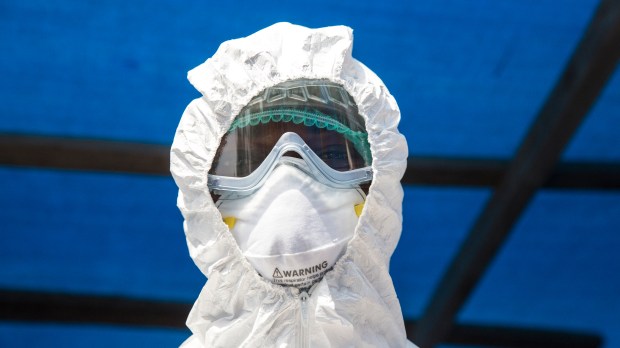Only hours after the president of Human Life International (HLI) warned that population-control advocates might exploit an emerging health crisis in Latin America, National Public Radio in the United States ran an interview with one such activist, who called for greater access to abortion and “massive campaigns” to inform men and women about the access to and use of contraceptives.
“One expects the call to avoid pregnancy to be exploited by population-control advocates who are always telling poor women and families to avoid pregnancy, most likely with renewed fundraising campaigns and antinatalist propaganda,” said Father Shenan J. Boquet.
The HLI president was responding to a request for comment from Aleteia on El Salvador’s recommendation that women avoid getting pregnant for two years because some suspect a link between the Zika virus and a birth defect.
The World Health Organization said the Zika virus is an emerging viral disease that is transmitted through the bite of an infected mosquito, primarily Aedes aegypti. The same mosquito also transmits the chikungunya virus and dengue and yellow fever. “The virus has been circulating since the 1950s in human populations and is found in Africa, Asia, the Pacific Islands and most recently in the Americas,” said a WHO press release.
Zika infections have been reported in almost two dozen countries and territories, and in some places, there have also been reports of microcephaly (abnormally small heads) in infants. The fear that Zika is causing this condition has led four Latin American countries to recommend that women delay pregnancy, with El Salvador recommending the longest period, two years.
A causal relationship between Zika virus infection and birth malformations and neurological syndromes has not yet been established, but is strongly suspected,” Dr. Margaret Chan, director-general of WHO, told the organization’s executive board Thursday.
But WHO said that more investigation is needed to understand the relationship between microcephaly in newborns and the Zika virus. Other potential causes are also being investigated.
Abortion is still illegal in many Latin American nations. NPR on Wednesday morning asked Madrid-based Monica Roa, program director of Women’s Link Worldwide, what options women have if they have been exposed to Zika.
“That’s why the debate should be on the table,” Roa said. “In countries like Colombia, women have the option of using emergency contraception or interrupting the pregnancy legally if they are infected with the Zika virus. However, most women, especially those in the most affected areas, do not have clarity over these laws. There is a lack of information and access to these services. And that is for the countries where these kinds of reproductive health services are legal.
“In some other countries, like El Salvador, these kinds of reproductive rights are illegal,” she continued. “This might lead to women getting more unsafe abortions and putting their health and life at risk.”
NPR’s Rene Montagne then asked Roa what support governments in the region could give “to help women reduce their risk of becoming pregnant in the first place.”
“These recommendations must be accompanied by massive campaigns, informing both men and women about the access to and use of contraceptives. [That access] is lacking throughout the region,” Roa responded.
She added, “Women who are pregnant should have information about the possibility of interrupting the pregnancy if the law allows it in that country. In the countries where the law doesn’t allow for [abortion], I think the debate [about reproductive rights] should be on the table and discussed in the context [of Zika virus infections].”
In his statement to Aleteia, Father Boquet said that HLI expects “this very difficult situation to result in demands for radical expansion of access to abortion in law, as if killing a child is tantamount to curing a disease. It is unfortunate that radical sexual and population control ideology has infected so many medical and political institutions, to the point where many have a well-earned mistrust of authorities who would always suppress fertility.”
He urged the Catholic faithful of Latin America “not to jump to conclusions … about what is behind the call to avoid pregnancy, but to pay close attention to what faithful Catholic medical experts who are studying the situation have to say in collaboration with the bishops.”
In case a clear link between Zika and serious birth defects is established, Catholic moral theology can guide the decisions of couples at risk.
“Catholic teaching tells us that it is morally licit for spouses to postpone pregnancy for serious reasons (cf Humanae vitae n. 10, 16), and these reasons may include the health of the mother and child,” Father Boquet said. “If a couple decides to postpone pregnancy, only natural methods — such as a number of ‘natural family planning’ methods that use medical indicators of fertility — are to be used. Artificial methods (such as hormonal, barrier, interruption) remain unacceptable. We urge the faithful to look to the bishops in the affected regions for guidance on these matters, as they are sure to be in dialogue with medical experts and will provide clear teaching as developments arise.”

